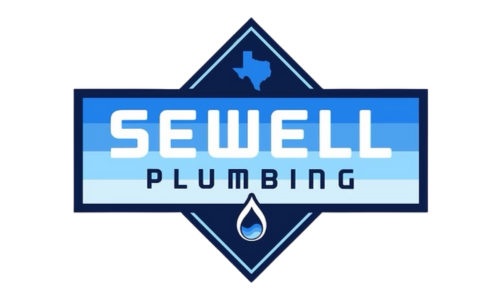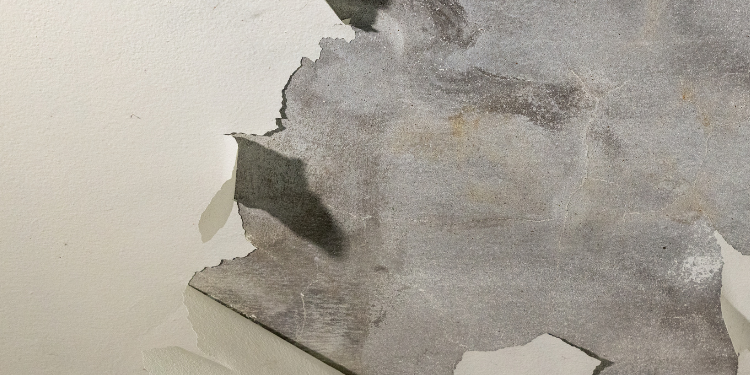Slab leaks can be a silent yet significant issue for homeowners, especially in areas like McKinney, TX, Allen, TX, and Frisco, TX. These leaks occur when the water lines beneath your home’s foundation break or crack, leading to potentially costly damages if not addressed promptly. Sewell Plumbing is dedicated to educating homeowners on the dangers of slab leaks and offering solutions to prevent long-term damage.
Key Takeaway: Slab leaks can cause structural damage and health risks due to mold and mildew. Professional detection and repair can prevent these issues from escalating.
Causes of Slab Leaks: Understanding the Source
Shifting Soil and Foundation Stress
One of the most common causes of slab leaks in areas like Allen, TX, is soil shifting. The ground underneath your home expands and contracts with moisture changes, putting stress on the pipes beneath the slab. Over time, this can cause cracks in the pipes, leading to leaks. Foundation stress is especially prevalent in areas with clay soil, like McKinney, TX, where temperature fluctuations affect the ground.
Corrosion of Pipes Over Time
Older homes in Frisco, TX, often have metal pipes that corrode over time. Corrosion can weaken the pipes, causing them to crack or break under the slab. Even newer homes aren’t immune to corrosion if the water is too acidic or the pipes were not properly installed. Corroded pipes can be difficult to detect, making routine inspections vital for preventing slab leaks.
Poor Installation of Plumbing
Improper installation of plumbing systems is another potential cause of slab leaks. Pipes that are too tightly bent or inadequately supported can break under pressure. Faulty installation is often hidden beneath the foundation, making it a challenge to spot until significant damage has occurred. To ensure your plumbing is installed correctly, learn more about Sewell Plumbing’s services, where professional installations are guaranteed.
How to Detect a Slab Leak: Early Signs to Watch For
Unexplained Increase in Water Bills
One of the first signs of a slab leak is an unexpected spike in your water bill. Even a small leak beneath the foundation can waste a significant amount of water. If you’re noticing higher bills without any visible leaks, it might be time to investigate what’s happening beneath your home.
Damp or Warm Spots on the Floor
If certain areas of your floor feel damp or unusually warm, you may have a slab leak. These leaks cause water to seep up through the foundation, eventually reaching the flooring. It’s especially concerning if these spots are near walls, as water can cause further damage to the structure of your home.
Low Water Pressure
Another sign of a slab leak is reduced water pressure. When water is escaping from a pipe under your slab, less water is available to flow through your taps, leading to a noticeable drop in pressure. This issue often coincides with a higher water bill, making it a critical indicator of a potential slab leak.
The Risks of Ignoring Slab Leaks
Structural Damage to Your Home
One of the most severe risks of slab leaks is structural damage. Water seeping from a broken pipe can erode the soil beneath your foundation, leading to cracks and shifts in the structure. Over time, this can result in costly foundation repairs or, in extreme cases, even a complete structural failure.
Mold and Mildew Growth
Mold and mildew thrive in moist environments, and a slab leak provides the perfect conditions for their growth. Left unchecked, this can lead to serious health problems, particularly for those with allergies or respiratory issues. The moisture from a slab leak often goes unnoticed until mold has already spread, making it crucial to address leaks early.
Increased Repair Costs Over Time
The longer a slab leak is ignored, the more damage it can cause, leading to exponentially higher repair costs. What starts as a small leak can quickly escalate into a full-blown disaster, requiring extensive work to not only fix the plumbing but also repair the foundation and address any mold or mildew issues.
How to Fix Slab Leaks: Expert Solutions
Slab Leak Detection and Diagnosis
Before any repair can be made, it’s essential to pinpoint the exact location of the leak. Professional plumbers use specialized tools, such as electronic leak detection equipment, to find the leak without the need for invasive digging. Learn more about how Sewell Plumbing’s expert team handles slab leak detection, ensuring minimal disruption to your home.
Rerouting or Replacing Pipes
Once the leak is located, the next step is to repair the damaged pipe. In some cases, this might involve rerouting the pipe to avoid future issues. For more severe damage, pipe replacement may be necessary. Rerouting involves installing new pipes around the damaged section to prevent further leaks. Replacement is usually the best option for corroded pipes, ensuring a long-term fix.
Foundation Repair and Restoration
If the slab leak has caused significant structural damage, foundation repair might be necessary. This can involve leveling the foundation, filling in gaps where the soil has eroded, and reinforcing the structure to prevent future issues. These repairs can be costly, but they’re crucial for maintaining the safety and stability of your home.
Answering Common Questions
What should I do if I suspect a slab leak?
If you suspect a slab leak, it’s important to contact a professional plumber immediately. Slab leaks can cause extensive damage if not addressed quickly, so early detection is key to minimizing repair costs.
How much does it cost to fix a slab leak?
The cost of fixing a slab leak can vary depending on the extent of the damage and the repair method used. Rerouting pipes may be less expensive than full pipe replacement or foundation repair, but it’s best to get a professional assessment for an accurate estimate.
Can I fix a slab leak on my own?
Slab leak repairs require specialized equipment and expertise, so it’s not advisable to attempt repairs on your own. DIY methods can often make the problem worse, leading to more costly repairs in the long run.
####The Importance of Routine Inspections
Routine plumbing inspections are essential for preventing slab leaks. Regular check-ups can detect early signs of corrosion or improper installation, allowing homeowners to fix minor issues before they escalate into larger problems.
####The Relationship Between Water Pressure and Slab Leaks
High water pressure can contribute to slab leaks by placing extra strain on your pipes. Ensuring that your home’s water pressure is within the recommended range can reduce the likelihood of leaks, saving you money on repairs in the long run. Installing a pressure-reducing valve can help maintain a safe water pressure level.
####Encouraging Professional Help from Sewell Plumbing
When it comes to slab leaks, professional expertise is crucial. At Sewell Plumbing, we specialize in detecting and repairing slab leaks in McKinney, TX, Allen, TX, and Frisco, TX. Don’t let a small leak turn into a big problem—contact us today for an inspection and repair before it’s too late.
For more information on plumbing issues, you can read about plumbing basics or explore the details of leak detection.







